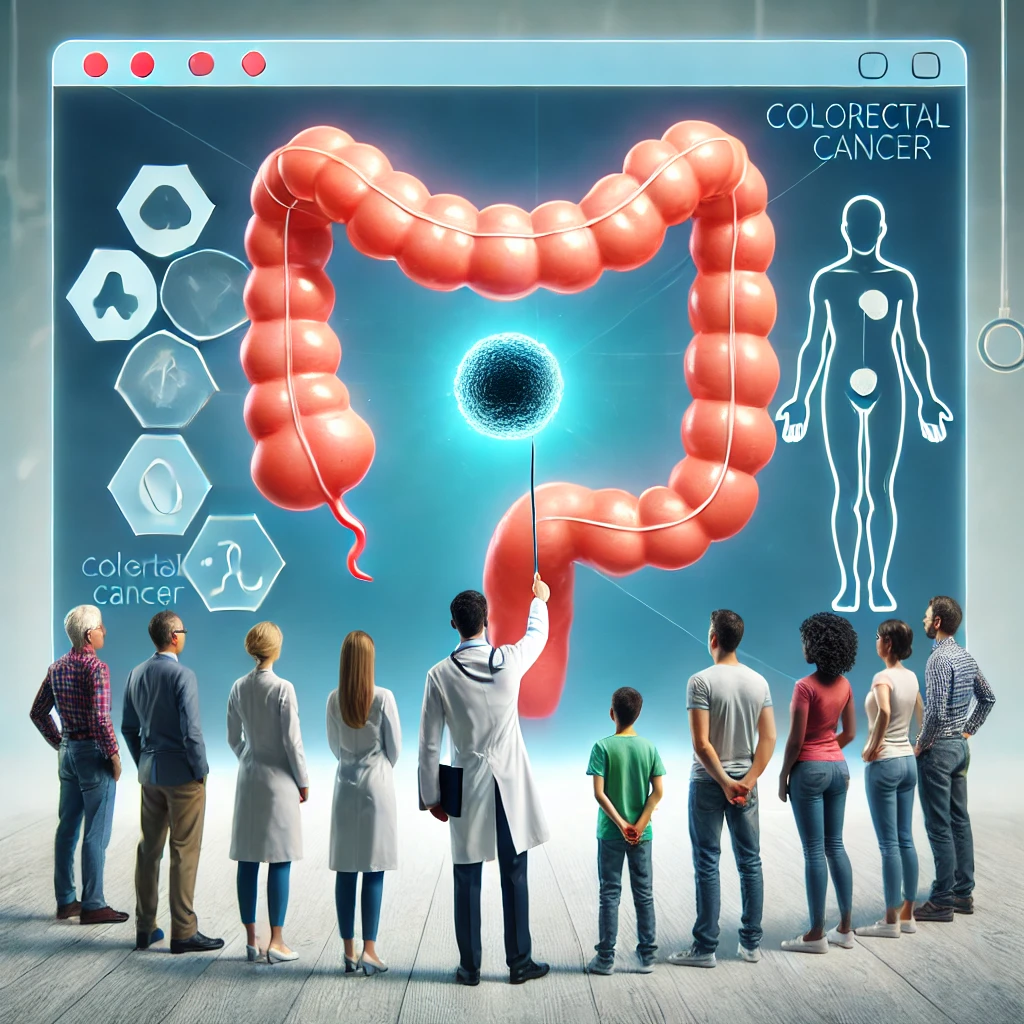Colorectal Cancer, also known as bowel cancer refers to cancer of the colon or rectum, which are lower parts of the large intestine. It is the commonest cancer affecting the digestive tract and also one of the commonest cancers in the world. Like many other diseases, many misconceptions surround this cancer. These myths often cause delayed screenings, misdiagnosis and poorer outcomes. So, the aim of today’s post is simple; we are debunking common myths about colorectal cancer. Let’s get to it!

Myth 1: Colorectal Cancer Only Affects Older People
It is true that age is a significant risk factor and older people are at a higher risk of colorectal cancer. However, colorectal cancer is not exclusive to older adults. In recent years, there has been a rise in cases among younger individuals. Lifestyle factors such as diet, obesity, and lack of physical activity contribute to early-onset colorectal cancer. In fact, the American Cancer Society recommends that screening begin at age 45 for average-risk individuals, and even earlier for those with a family history of the disease.
Myth 2: Colorectal Cancer is a Man’s Disease
Both men and women are at risk of developing colorectal cancer, although the former may have a slightly higher risk. Know that women are equally susceptible, especially post-menopause. Sadly, some women often undermine screenings because they wrongly believe the disease only affects men. Remember that screenings and a healthy lifestyle towards preventing colorectal cancer are essential for both genders.
Myth 3: Colonoscopies Are Painful and Dangerous
Colonoscopies are procedures that doctors use to look out for cancers or polyps in the colon. Many people avoid colonoscopies due to fear of pain or complications. In reality, a colonoscopy is a safe and effective procedure. Patients are sedated during the process, making it painless. The procedure itself takes about 30 minutes, and serious complications are rare. Colonoscopies are the gold standard for early detection, as they allow doctors to find and remove precancerous polyps before they develop into cancer.
Myth 4: If You Have No Symptoms, You Don’t Need Screening
Like many other cancers, colorectal cancer can develop silently, without noticeable symptoms in its early stages. By the time symptoms such as rectal bleeding, changes in bowel habits, or unexplained weight loss begin to appear, the cancer may already be advanced. This is why it is important to go for regular screenings, even in the absence of symptoms. This simple step can help detect cancer early when it is most treatable.
Myth 5: Eating Fiber Prevents Colorectal Cancer Completely
Eating fiber is good, no doubts. Indeed, a high-fiber diet is beneficial for digestive health and can lower the risk of colorectal cancer, but it does not guarantee immunity. Other factors such as genetics, smoking, excessive alcohol consumption, and a sedentary lifestyle also contribute to the risk. Hence, a balanced approach, including regular screenings, exercise, and a healthy diet, is the best way to prevent colorectal cancer.
A Word from HealthFacts to You
Essentially, misinformation about colorectal cancer can be dangerous and it is important to arm yourself with facts about this disease. One important takeaway from today’s post is that regular screening is key! So, if you are 45 and above, you should discuss screening options with your doctor. We also encourage you to share this post with your loved ones and help spread the truth about colorectal cancer.
Subscribe to our newsletter for more updates from us.









